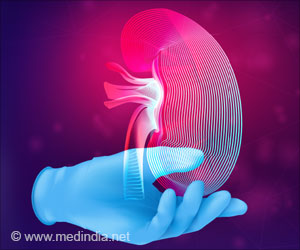Dementia is an umbrella term used to describe a set of symptoms, including a slow but typically irreversible decline in the ability to remember, think, make decisions or perform day-to-day activities.
It is one of the most serious disorders that affect 55 million people. It is not only a burden for the patients and their families but society as a whole.
“Metabolites are chemical substances produced by vital chemical reactions that occur within cells and tissues. Our body normally keeps these levels in balance, but as we age and if we develop diseases like dementia, these levels can fluctuate and change,” says first author Dr. Takayuki Teruya, who works in the G0 Cell Unit at the Okinawa Institute of Science and Technology Graduate University (OIST).
Metabolic Compounds and Dementia
The study team thus analyzed the samples of blood collected from eight patients with dementia, eight healthy elderly people, and eight healthy young people (as a reference) to examine the blood metabolites within red blood cells.
The levels of almost 124 different metabolites in whole blood were measured by the team. The study found that among the 33 blood metabolites (split into 5 different sub-groups A-E), seven metabolites were found at higher levels of patients with dementia, compared to healthy elderly people.
These metabolites are believed to be toxic to neurons and could hint at a possible cause for dementia.
The other 26 metabolites were found at lower levels in patients with dementia, compared to elderly people with no health conditions. These metabolites are believed to protect neurons against damage from free radicals, help maintain energy reserves and provide nutrition.
Thus the study suggests that supplements that raise the levels of these metabolites could be a potential new treatment for dementia.
“Identification of these compounds means that we are one step closer to being able to molecularly diagnose dementia. In the future, we hope to start some intervention studies, either by supplementing dementia patients with metabolic compounds in sub-groups B-E, or by inhibiting the neurotoxins from sub-group A, to see if that can slow, prevent, or even reverse symptoms of dementia,” says senior author of the study, Professor Mitsuhiro Yanagida, who leads the G0 Cell Unit at OIST.
Source: Medindia



